Introduction
In recent years, the concept of ethical sourcing has gained significant traction, especially within the meat distribution industry. Ethical sourcing involves obtaining meat products in ways that consider animal welfare, environmental sustainability, and fair labor practices. This approach aims to mitigate the negative impacts of traditional meat production methods, which often involve intensive farming practices that can harm animals, the environment, and the communities involved in production. This article delves into why ethical sourcing matters in meat distribution, exploring its benefits, challenges, and the transformative impact it can have on the industry.
History and Evolution of Ethical Sourcing in the Meat Industry
The meat industry has undergone substantial changes over the past few decades. Traditionally, meat production focused primarily on efficiency and profitability, often at the expense of ethical considerations. However, growing awareness about animal welfare, environmental degradation, and the social implications of meat production has spurred the emergence of ethical sourcing. This movement seeks to ensure that meat is produced in ways that respect the animals, minimize environmental impact, and provide fair conditions for workers.
Benefits of Ethical Sourcing in Meat Distribution
Environmental Benefits
Ethical sourcing practices can significantly reduce the environmental footprint of meat production. Methods such as pasture-raised livestock and organic farming help preserve biodiversity, reduce greenhouse gas emissions, and improve soil health.
Economic Benefits
While the initial costs of ethical sourcing can be high, it can lead to long-term economic benefits. Consumers are increasingly willing to pay a premium for ethically sourced products, which can enhance brand loyalty and market competitiveness.
Social Benefits
Ethical sourcing ensures fair wages and safe working conditions for laborers in the meat industry. This not only improves the quality of life for workers but also fosters a more sustainable and humane supply chain.
Challenges and Barriers to Ethical Sourcing
Legal and Regulatory Issues
One of the major obstacles to ethical sourcing is the lack of consistent regulations across different regions. This can make it difficult for companies to implement standardized ethical practices.
Costs and Initial Investments
Transitioning to ethical sourcing often requires substantial initial investments in infrastructure, training, and certification processes, which can be a barrier for smaller producers.
Public Awareness and Education
Many consumers and producers are still unaware of the benefits and importance of ethical sourcing. Increasing awareness and providing education are crucial for the widespread adoption of these practices.
Strategies and Methods for Implementing Ethical Sourcing
Use of Modern Technologies
Technological advancements, such as blockchain and IoT, can enhance traceability and transparency in the supply chain, ensuring that ethical practices are maintained throughout.
Collaboration with Local Farmers
Collaborating with local farmers can support community development and ensure that ethical sourcing practices are implemented effectively at the grassroots level.
Consumer Education and Awareness
Educating consumers about the benefits of ethical sourcing can drive demand for ethically produced meat, encouraging more producers to adopt these practices.
Successful Examples of Leading Companies in Ethical Sourcing
Several companies have successfully implemented ethical sourcing practices, setting benchmarks for the industry. For instance, companies like Whole Foods Market and Niman Ranch prioritize animal welfare, environmental sustainability, and fair labor practices, leading to high consumer trust and loyalty.
Impact of Ethical Sourcing on Consumers
Ethical sourcing has led to a shift in consumer behavior, with more individuals seeking products that align with their values. This increased demand for ethically sourced meat products has not only raised awareness but also influenced the market to prioritize ethical practices.
Conclusion
Ethical sourcing in meat distribution is not merely a trend but a necessary evolution towards a more sustainable, humane, and fair industry. By addressing the challenges and leveraging the benefits, producers can contribute to a healthier planet and society. Consumers, too, play a crucial role by supporting ethically sourced products, thereby encouraging more companies to adopt these vital practices.


